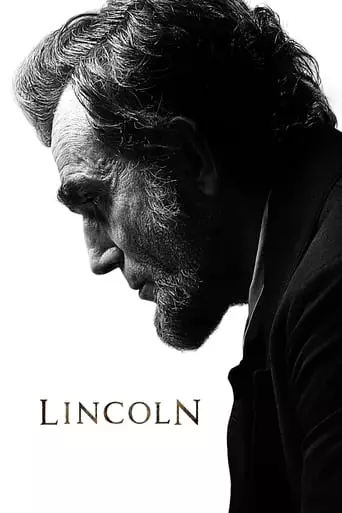
Lincoln (2012) Watch Online Free
The revealing story of the 16th US President’s tumultuous final months in office. In a nation divided by war and the strong winds of change, Lincoln pursues a course of action designed to end the war, unite the country and abolish slavery. With the moral courage and fierce determination to succeed, his choices during this critical moment will change the fate of generations to come.
Lincoln (2012), directed by Steven Spielberg, is a historical drama focusing on President Abraham Lincoln’s final months in office during the American Civil War. The film delves into his efforts to pass the Thirteenth Amendment, which would permanently abolish slavery in the United States, a goal he saw as vital not only to ending slavery but also to preserving the Union.
Plot Summary: The film is set in January 1865, after Lincoln’s re-election. The Civil War is nearing its end, but Lincoln is determined to pass the Thirteenth Amendment before the conflict officially concludes. He believes that even if the war ends, the Emancipation Proclamation could be overturned by the courts, and the South could reintroduce slavery. To ensure the amendment’s passage, Lincoln must secure votes from the Democratic Party, particularly from “lame-duck” congressmen who have already lost re-election. The movie centers on Lincoln’s political maneuvering, involving tactics of persuasion, lobbying, and offering patronage positions to win over enough votes to pass the bill. At the same time, the president deals with personal struggles, including his complex relationship with his wife, Mary Todd Lincoln, and his son Robert’s desire to enlist in the army.
Analysis and Themes: Spielberg’s Lincoln is an exploration of political strategy, moral conviction, and the personal sacrifices made for the greater good. The film portrays Lincoln not as a flawless hero but as a deeply human figure who grapples with the moral weight of ending slavery while navigating the turbulent political waters of his time. The primary theme revolves around the abolition of slavery, but it also explores the nature of leadership, the political compromises required to achieve transformative change, and the personal costs of such leadership.
The film presents Lincoln as a master of persuasion, using his skill as a storyteller and negotiator to sway congressmen. It emphasizes the tension between his moral and political duties, highlighting the struggles faced by the president in balancing personal beliefs with political pragmatism. Spielberg also touches upon the broader theme of justice, as Lincoln’s drive for the amendment is tied to a vision of equality and the belief that the United States should be a nation that guarantees freedom for all its citizens.
Another significant theme is the intersection of race and politics. While Lincoln’s commitment to the abolition of slavery is clear, the film does not shy away from presenting his complex views on racial equality. It shows his gradual shift toward supporting black suffrage but also underscores the political constraints and public attitudes of the time.
10 Reasons to Watch:
How You Might Feel After Watching: After watching Lincoln, you might feel a sense of awe at the determination and moral courage demonstrated by one of the most pivotal figures in American history. The film’s portrayal of the challenges Lincoln faced could evoke admiration for his leadership and empathy for his personal struggles. However, you may also feel a sense of sorrow and reflection, as the film underscores the personal toll of making difficult, world-changing decisions. The movie will likely leave you thinking about the nature of justice, the complexities of political compromise, and the ongoing fight for equality.
The film’s focus on human perseverance in the face of deep division could inspire both a sense of hope for progress and a deeper understanding of the costs involved in achieving societal change
